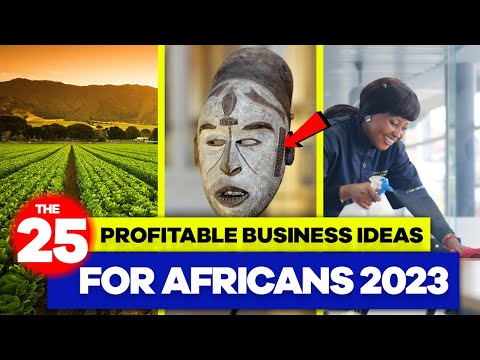EP 02 - INSPECTEUR MAGICJACK - BUSINESS IS BUSINESS

HIDDEN SECRETS BAY Yes Officer Ramad So I hear you've made a very big catch? 50,000 doses of Tetra Ultra is quite a lot! Congratulations super cop! You can drop the bag off to me, I have to write it down in the register. Officer Ramad, who told you I had a bag? Come on Super Cop... bring him back and everything will be fine...
Tell BURNCRUSHER that this is just the beginning. In the shadow, the light. For years I have been walking the streets of Creepy Town to uncover the darkest of cases. With each investigation, I strive to gather evidence in an attempt to uncover the truth in the hope that one day justice will be served. You are about to enter a terrifying world from which it will be difficult to escape unscathed. Hello to you who are watching this recording, I am Inspector MagiCJacK Video archive 02 Code name: Business is Business Animal trafficking is now considered as being as lucrative as the sale of arms or drugs.
It is the leading criminal activity and brings in over 200 billion dollars a year. Many people think that the animals killed are used to produce fur or decorative objects reserved for a rich and powerful class, but the reality is much darker and more complex than it seems. Among all its poached species, it is estimated that between : 500 and 600 million tropical fish, 15 million fur animals, 5 million birds, 2 million reptiles and 30,000 primates. Among the most sought-after animals, reptiles have seen their trade increase by 250% in 5 years. Every year thousands of geckos, lizards and chameleons are on the list of the most sought after and trafficked species on the globe. Apart from reptiles, the situation for birds is just as bad.
To give you an example, blue parrot eggs are a sought-after catch that can sell for more than 4500 euros. These eggs are bought in the Amazon from hunters who sell them for less than 5 euros each. Some parrots sell for over 60,000 euros. Imagine the profit for the traffickers. This is the same region of the world where about 10% of animal trafficking originates.
The consequences on ecosystems are immense and create upheavals each year that lead to social and health shocks, as we saw in 2020 with Covid-19, a potential consequence of the direct or indirect exploitation of pangolins and bats. These animals are massively trafficked in Africa and then imported into China. But this will be the subject of another investigation, because everything about the Covid is still very vague and many grey areas remain. The fact is that the more a species is sought after, the more expensive it is on the black market. The more expensive it is, the more it is hunted and therefore the higher the prices. In just a few years, this kind of mechanism alone is enough to threaten the survival of species that are prized by poachers.
THE EXTINCTION BUSINESS The poaching of parrots has reduced the macaw population to less than 1,000 specimens. The price of bluefin tuna has risen to 5,760 euros per kilo as the species has become scarce due to fishing. For the auction at the beginning of 2020, Kiyoshi Kimura, CEO of the Sushi Zanmai restaurant chain, bought a 276 kg bluefin tuna for 1.59 million euros. But the subject of overfishing will also be the subject of another investigation. SHAHTOOSH WOOL In Asia, certain species of antelope are particularly sought after for their wool, which is used to weave shawls that are sold for more than 3000€ each.
This Shahtoosh wool, which I can translate as "King of wools", is the essential ingredient in the making of these clothes. As each piece requires 3 antelopes, their traffic is extremely aggressive and lucrative. 4th most lucrative traffic in the world As you can imagine, this criminal enterprise is organised by groups that constitute one of the most important branches of international organised crime. However, this traffic is not only maintained by wealthy people. Every year, many tourists are also implicated after having bought and brought back millions of ivory necklaces or tortoise shell combs Some of them are not even aware that they are financing this traffic.
To give you an example, 10,000 of these Ivory collars represent the total population of elephants in Africa. This species is exploited to the hilt. After being dismembered, the elephants' feet are used as footstools by rich and unscrupulous clients.
They are among the species most affected by poaching. Remember that every year between 10,000 and 30,000 elephants are killed for their ivory, threatening the survival of their species. But despite their high profile, pachyderms are a baobab tree hiding a forest of species that suffer the same fate.
Tigers, rhinos and sea turtles are slaughtered by the thousands to be turned into everyday objects that will delight many tourists. In 2009, a kilo of rhino horns sold for 24,000 euros, more expensive than a kilo of gold at the time. Tiger skins were trading at 14,000 euros. I will now turn to the case of gorillas, which have long been slaughtered for their meat and are prime prey for poachers. Their hands are cut up and used as ashtrays, while their skulls are used as paperweights. Their babies are also sought after to be sold to circuses and zoos, pushing the species to the brink of extinction.
There is also an extremely lucrative shark fin trade, with estimates of the number of sharks killed in the tens of millions per year. The NGO SEA SHEPHERD has been fighting tirelessly for years, but again, this will also be the subject of a future investigation. INTERNATIONAL CRIMINAL ORGANIZATION Make no mistake, the people in charge of this trade are not exactly old poachers with rusty guns. The diversion and exploitation of species involves heavily armed forces with advanced surveillance systems, GPS and fast vehicles.
The profits are immense and as such the armed forces that organise and support it are trained. The trafficking chain is long, complex and involves a large number of intermediaries. At the source of this traffic are the leaders of the criminal circle. The species are selected by this circle, which then passes on its orders to the poachers who do the dirty work. The poachers spend a lot of time in the wild and are supplied with weapons and vehicles by gangs. If the species ordered are to be taken alive, the poachers receive specific training.
On the upper floor are the smugglers who collect the animals and hide them either in suitcases or directly on them in disastrous conditions. The result of these operations on the animals that survive is often a trauma that will scar them for life. For example, the birds, whose beaks are taped shut, are drugged during the journey.
These methods usually kill 80% of the birds, leaving 20% of the surviving specimens with significant trauma. It has been documented that these birds sold to many wealthy buyers are also used as currency for the basic ingredients of methamphetamine. The Chinese triad uses these methods and accepts rare and protected shells as payment.
Unfortunately, these "currencies" used for trafficking remain almost impossible for local law enforcement to track. TERRORIST ORGANIZATION Poaching is not just about the animal trade. In fact, it is one of the cornerstones of major international criminal and terrorist organisations.
Al Shabaab terrorist groups make huge profits from their elephant and rhino poaching activities, potentially accounting for up to 40% of their income over the years. These revenues are directly injected into the financing of weapons of war and soldiers who will swell their ranks. Poachers and smugglers store the collected ivory in bushes, holes in the ground and in tents set up precisely for the ivory trade: their "white gold". They collect ivory in anticipation of buyers who are often involved in the sale of arms, drugs and also uranium. These buyers have connections in the embassies of countries such as Libya and South Korea.
The success of the armed forces lies in one thing: The ability to pay their soldiers. In addition to receiving food, water and weapons, these men are also paid about $300 per month. These favourable conditions allow these men to earn more money than the Somali soldiers they are fighting. This forces some state-employed soldiers to turn around and work for the traffickers for the promise of a better life.
Ivory seizures are huge. Terrorist forces can collect up to 3 tons per month. These quantities of ivory are then transported through the ports, raising $1,500,000 a month in revenue to pay 5,000 men. As you have understood, poaching is not a harmless activity carried out by people in search of income to make ends meet.
The exploitation of animals is rampant throughout the world and this is thanks to important means but also thanks to a chain of intermediaries that has ramifications extending to certain terrorist and political circles. Technologies to save lives Although poachers use new technologies to achieve their goals, many NGOs and companies dedicated to species protection use sophisticated equipment to protect their reserves. Recently, Dimension Data and Cisco teamed up to develop a long-range detection system. This anti-theft system has made it possible to considerably reduce the number of rhinos killed, even bringing this number to zero in certain reserves in South Africa. These systems have increased the response time of rangers from 30 minutes to less than 8 minutes.
Today, many eco-guards work day and night to protect nature reserves. These eco-guards are often victims of attacks by poachers who once again stop at nothing to maximise their profits. Heroes who fall in silence Recently, an ecoguard lost his life while trying to defend the Virunga National Park. Spread over an area of more than 8000 km², this African park serves as a sanctuary for a large number of gorillas. Attacked on several occasions by the FDLR group, whose members include criminals who participated in the genocide in Rwanda. The Virunga National Park has lost more than a dozen Rangers who were killed in Congo in 2020.
A figure that will increase in the coming months. As a reminder, more than 1,000 eco-guards have been killed by poachers in 35 different countries over the last ten years. Involved in the fight against poaching since the 1960s, Dian Fossey was killed in mysterious circumstances at the age of 53. She was committed to the preservation of ecosystems, but especially to the protection of gorillas, and contributed to a significant increase in their population.
Diane Fossey was killed for her ideas and for having the courage to put them into practice. She now rests in peace, buried next to her friend Digit, a gorilla she loved like her own child. BASEMENT Is it for me? Do you like it? It's very good.
You should get some rest. What?! I'll rest when I'm dead, You do your job and let me do mine. Let's go 1,2 and 3 Giovanni was a well-respected bricklayer in his neighbourhood. One night five years ago, while walking home, he caught some kids dealing Tetra on his street. Giovanni defied the cartel by publicly destroying all the Tetra the young dealers had on them, earning him the nickname Bad Nonno, which means bad grandpa. The following week Burncrusher sent two of his best men to kill him, his wife and son, they broke his bones with a sledgehammer and then left him for dead, bathed in the blood of his family.
But Bad Nonno survived and nobody knows he is alive. He waits patiently for the timid and volatile justice to come to him... and believe me... it will come. SMELLY TOX AREA BURNCRUSHER FACTORY The Tick is here, Boss.
I found him boss. Inspector MagiCJacK, the last surviving member of the Alpha Canis section. I thought we had cleaned up the special forces.
The Alpha Canis were a secret commando group specially trained to be able to manage themselves in the event that power became corrupted. ...so he is a lone wolf. His colleagues confirmed that he cannot be bought, but there are many who would like to see him die. You're going to go to his house and quickly sort it out before the Baron finds out. Yes but we have a little problem boss...
even in his department nobody knows where he lives, no registry, no address, nothing. So what do we know about this dog? He has a degree in criminology and is the cream of the crop in anti-terrorism. It is also known that before joining the police he had a very advanced degree in chemistry and a master's degree in aeronautics at Heisen University. One of the cops told me that he also investigates animal trafficking on his own account. How moving... but what does this have to do with our business? There are rumours that one of her friends overdosed with one of our products.
This is very unfortunate. And you, Tick, what did you notice about him? He is a mechanical expert. His car is completely rigged like his guns. But this isn't cop stuff. I think he makes everything himself.
I also had what he stuck in my neck analysed. It was a homemade injection device that contained 3 of the most dangerous neurotoxins in the world, including VR. It was enough to kill me thousands of times in one dose. I think he knew you were a Genetically Modified Human, but since he didn't know exactly what genes you have he preferred to be forward thinking. Do you think he's a GMH too? No, I don't even think he's human. Friends or family to blackmail? Nothing, he's a fucking ghost, but one thing's for sure, there's a snitch in our ranks or he'd never have known about Tetra.
What are our losses? 50,000 doses, half a million dollars. My dear Acaria, I count on you to bring him back to me... ...or I'll rip your head off and squash the rest of you like a bug under my foot. That goes for you too, you parasites! Get out! OFFICE OF THE INSPECTOR Justice for All / Justicia Omnibus Thanks to the tireless work on the ground of investigators, lawyers and citizens, many criminals are being arrested. I would like to warmly greet my dear friend Luc Mathot, founder of the NGO Conservation Justice, who has participated in the arrest of more than 500 poachers.
Some cases have made headlines. This was the case of the trafficker nicknamed the "Queen of Ivory" who was recently sentenced to 15 years in prison for having trafficked more than 800 elephant tusks between 2000 and 2014. Her arrest was followed by that of her accomplices who were fined more than 10 million dollars. In 2019 more than 2700 elephant tusks were seized in China. 20 suspects were arrested in the operation. Regularly, several tons of elephant tusks are seized and burned, as was the case in Malaysia where the equivalent of 3.2 million dollars worth of illegally seized tusks were reduced to ashes.
The same is true in Gabon, where 5 tons were burned in the name of the fight against poaching. Recently a New Yorker was nabbed by the courts for trafficking in animal skulls, claws and teeth. A 9-month prison sentence for this man that cost hundreds of hours of work for investigators dedicated to the protection of species. While some have been arrested, others have enjoyed their power with impunity. In 2012, King Juan Carlos, honorary president of the WWF, was hunting elephants with taxpayers' money. The cost was estimated at €35,000, while his people were demonstrating in the streets to denounce the austerity measures implemented by the government.
Tourism and Influencers To increase their likes and visibility, stars and influencers of all kinds pose with endangered and trafficked species. Dubai is a popular destination In France, reality TV stars visited a zoo in Dubai at the end of 2020 where animals are accessible at hand. To name just a few notable examples, the zoo gave the couple access to monkey walks on a leash, crocodiles with their mouths held shut and also baby tigers. One case among thousands of others. A practice that Internet users did not fail to point out. Other examples from Asia Monkey obeying in fear.
Animals used for photos. Tiger continuously drugged to keep it in position. Sharpened point for the elephant to carry out orders.
HUNTING PERMIT KILLING PERMIT One of the most effective weapons against poaching is not to participate as an individual. A simple piece of advice that would have been better applied by Walter Palmer, a Minnesota dentist who, as a sport hunter, paid €50,000 to kill a lion. Having wounded the animal with an arrow, the dental specialist then shot it with a firearm.
Let's take a look at the case of Kendall Jones, a young American girl who has been hunting and killing some of the world's most sought-after species since she was 13. She explains that she managed to kill the "Big Five" of animals before she was 14. That is, the elephant, the lion, the leopard, the rhinoceros and finally the buffalo.
EVERY LIFE HAS A PRICE The fact that influencers and wealthy individuals can access and even kill some of Africa's animals may seem absurd, yet some companies are turning it into a lucrative business by offering multi-day safaris with "trophy" prizes. The animals killed are stuffed and repatriated to the hunter's country against payment of a "trophy fee". Depending on the African country where the safari is practiced, the trophy fee is estimated to range from €600 for warthogs to over €110,000 for a white rhinoceros. THE PASSION TO KILL Today we can count at least 20 countries in Africa that allow this kind of practice. A disaster for ecosystems. Trafficking and luxury brands However, it is not only the wealthiest individuals who are taking advantage of the system's limitations more or less legally.
Some major brands have also been nabbed by the US authorities. Investigations reveal that between 2003 and 2013 more than 5,600 items were seized because they contained leather made from reptile skin. This includes bags and shoes that may have been linked to illegal wildlife trafficking. Crocodile slaughter for the Louis Vuitton brand These practices show the difficulties that the biggest luxury brands have in managing their raw materials and their supply chain efficiently. (Crocodile breeding for the Louis Vuitton brand) Reptile slaughter for the GUCCI brand Snake skinned alive for Louis Vuitton After such an observation, a question arises? What can we do? The fact that we have data on the crimes committed is already a positive sign because it helps to inform and raise awareness. The first vital solution, in my opinion, which costs nothing and is within the reach of each and every one of you, , is to share the information, because you will thus be participating in weaving a web of justice that will help to apprehend the criminals and bring these massacres to light.
Knowledge is one of the best weapons to destroy ignorance. There are of course other solutions, such as creating a committed artistic work, supporting and volunteering for an association or even creating your own project directly on the ground. Your imagination is your only limit. Former sniper Damian Mander has created an army of 400 rangers who are dedicated to saving the local wildlife.
This elite unit consists only of Akashinga women who dedicate their lives to protecting the species. In Africa, the NGO VETPAW recruits US army veterans to tackle poaching with the best military techniques available. Another notable example on the African continent is the daily work of Eagle Network and Eagle Enforcement in arresting poaching groups.
THE NGO arrested more than 2,000. Eagle Network works directly with law enforcement agencies, overseeing the proper conduct of operations. As governments struggle to fend off the onslaught of poachers, eco-terrorists, wealthy tourists and private citizens are taking more radical action. This is the case of Kinessa Johnson who, after a career in the US Army, fights to protect the most endangered animals in Africa. The veterans who accompany her are discovering a second career in preventive action to save what she considers the most precious resources of our planet: wildlife.
I will end the archiving of my investigation by saying that contrary to what many people think, the human race is not only about destruction and slaughter, it can be just as resourceful in defending biodiversity. Although criminal groups are becoming more diverse, many organisations are flourishing in many countries to defend wildlife. You who will see this survey, thank you for listening. Confidential file 02 Closed. Inspector? Younz? Are you OK? It's over...I'm toast Where are you? At the former Scorpia Industry building.
I'll be right there. Please take my body back to my brother. Don't touch me... YounZ TO SUPPORT OUR PRODUCTIONS CLICK ON THE LINK IN THE DESCRIPTION WE NEED YOU
2022-07-20 04:48


